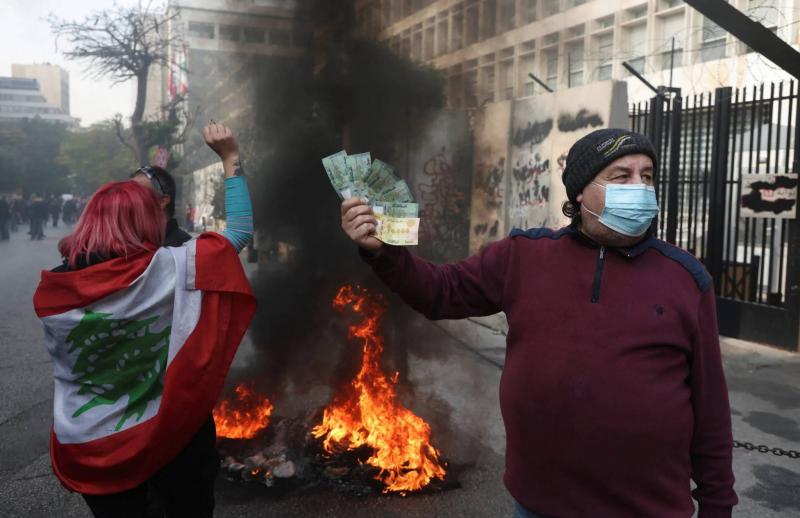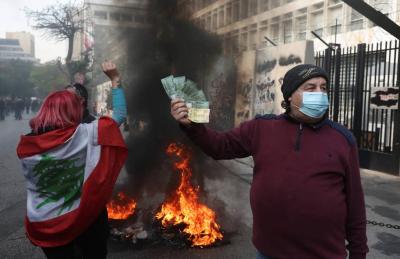Three informed sources revealed to Reuters that Lebanon is likely to be placed on the "grey list" of countries under special scrutiny due to unsatisfactory practices in preventing money laundering and financing terrorism. According to the Financial Action Task Force (FATF) standards, specifically Recommendation (19) regarding high-risk countries, financial and non-financial entities subject to the provisions of the Anti-Money Laundering and Terrorism Financing Law No. (46) of 2007 must implement enhanced due diligence measures that are effective and proportionate to the level of risk involved in relationships and operations conducted with individuals or entities from categories of countries that FATF calls for such measures to be taken against.
Accordingly, based on the provisions of item (1) of paragraph (A) of Article (6) and items (1) and (5/First) of paragraph (A) of Article (14) of the Anti-Money Laundering and Terrorism Financing Law, and based on the decision of the National Committee for Combating Money Laundering and Financing Terrorism No. (6/2020) dated 6/8/2020 concerning high-risk countries, the following countries have been classified as high-risk for the purpose of applying anti-money laundering and terrorism financing guidelines.
**Category One**: High-risk countries (black list): These are countries with strategic deficiencies in their anti-money laundering and terrorism financing systems and the proliferation of armaments, against which FATF urges all member countries to take countermeasures.
**Category Two**: Countries under increased scrutiny (grey list): These are countries working with FATF to address deficiencies in their anti-money laundering and terrorism financing systems and where these countries commit to following a specified action plan to remedy their shortcomings.
**Category Three**: Countries under sanctions by the Security Council: These are countries that are subject to sanctions from the United Nations Security Council according to decisions made by the Council, which impose restrictions on activities, transactions, and business relationships with individuals and entities.
**Category Four**: Tax havens: These are countries and territories that impose a lower tax rate for non-residents and do not share any financial or banking information with foreign tax authorities, according to the financial secrecy index issued by the Tax Justice Network.
**Category Five**: Countries with high levels of corruption: These are countries listed in the Corruption Perceptions Index published by Transparency International, which ranks countries and territories based on the degree of perceived corruption in the public sector. This composite index relies on numerous surveys and studies based on data related to corruption collected from various reliable institutions, reflecting the views of observers worldwide.
All parties subject to the provisions of the Anti-Money Laundering and Terrorism Financing Law No. (46) of 2007 must take into account the concerns related to deficiencies in anti-money laundering and terrorism financing systems in the countries listed in the above categories, with regards to business relationships and operations conducted with individuals or entities (including financial institutions), and must take necessary actions proportional to the risk levels identified.
It is worth mentioning that the FATF was established by agreement among the governments of its members and did not arise based on an international treaty. It determines its work, regulations, rules, and procedures. It cooperates with other international bodies, particularly with the FATF to achieve its objectives.
The group emerged from the ministerial meeting held on November 3, 2004, in Manama, Bahrain, where the governments of 14 Arab countries decided to establish the Middle East and North Africa Financial Action Task Force (MENAFATF) to combat money laundering and financing terrorism, operating similarly to the FATF. It was agreed that the headquarters would be located in Bahrain.




